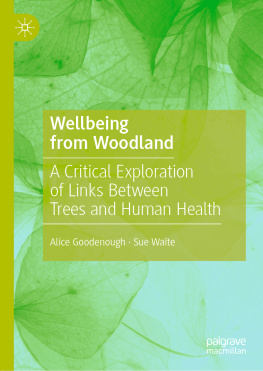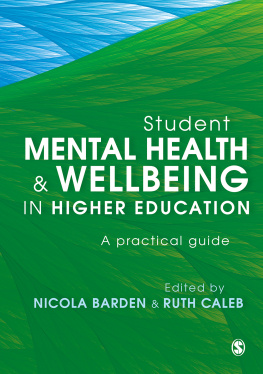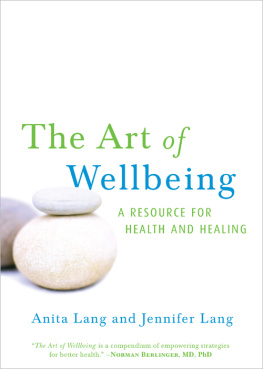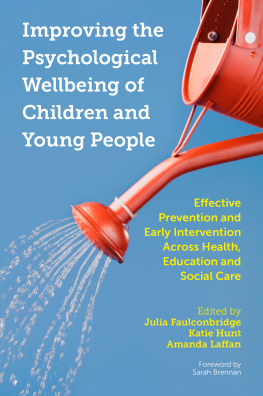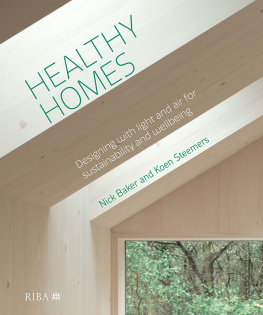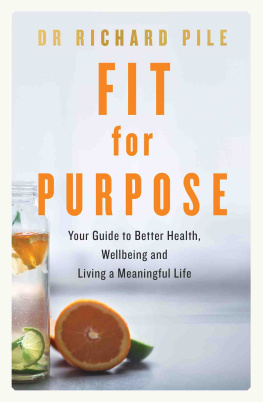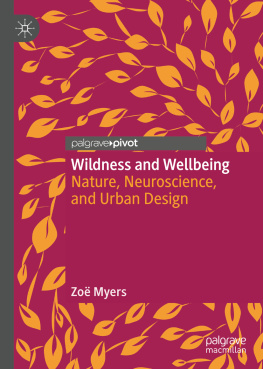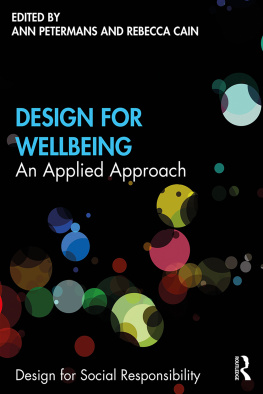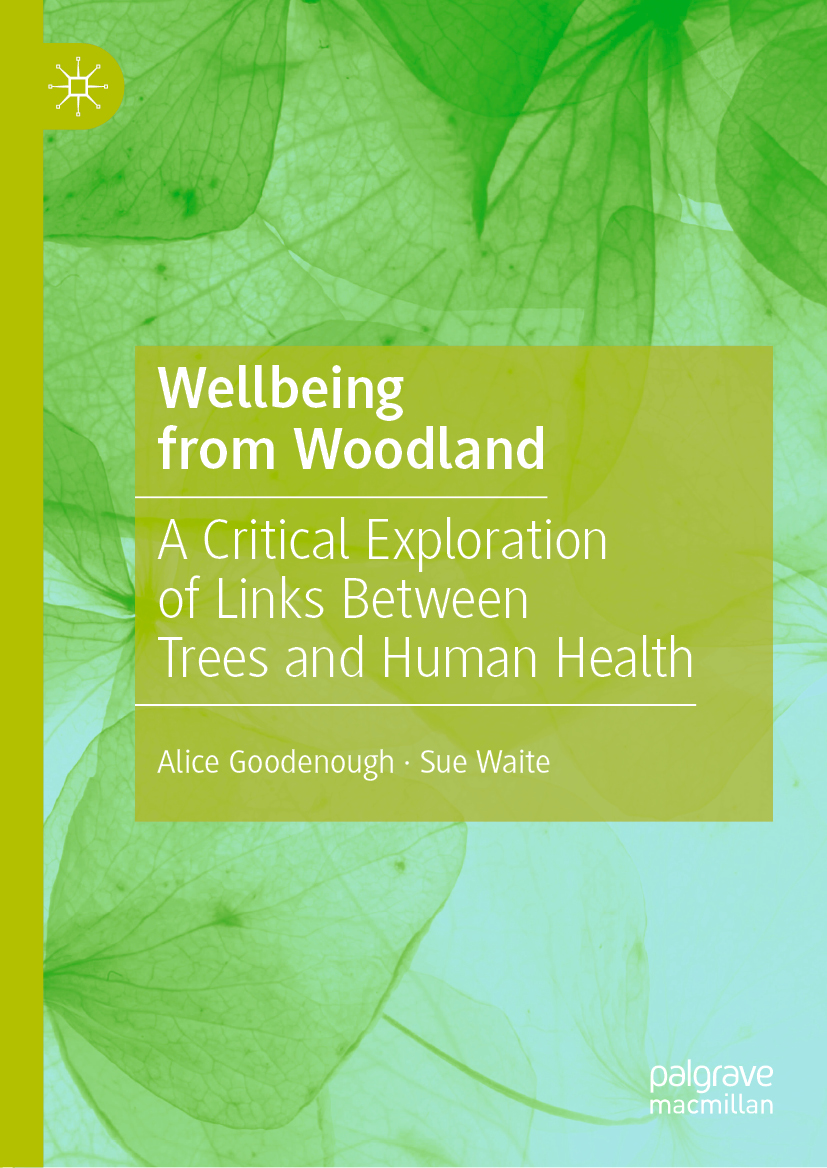Alice Goodenough and Sue Waite
Wellbeing from Woodland
A Critical Exploration of Links Between Trees and Human Health
Alice Goodenough
Independent Researcher, Stroud, UK
Sue Waite
Institute of Education, University of Plymouth, Plymouth, UK
ISBN 978-3-030-32628-9 e-ISBN 978-3-030-32629-6
https://doi.org/10.1007/978-3-030-32629-6
The Editor(s) (if applicable) and The Author(s) 2020
This work is subject to copyright. All rights are solely and exclusively licensed by the Publisher, whether the whole or part of the material is concerned, specifically the rights of translation, reprinting, reuse of illustrations, recitation, broadcasting, reproduction onmicrofilms or in any other physical way, and transmission or information storage and retrieval, electronic adaptation, computer software, or by similar or dissimilar methodology now known or hereafter developed.
The use of general descriptive names, registered names, trademarks, service marks, etc. in this publication does not imply, even in the absence of a specific statement, that such names are exempt from the relevant protective laws and regulations and therefore free for general use.
The publisher, the authors and the editors are safe to assume that the advice and information in this book are believed to be true and accurate at the date of publication. Neither the publisher nor the authors or the editors give a warranty, expressed or implied, with respect to the material contained herein or for any errors or omissions that may have been made. The publisher remains neutral with regard to jurisdictional claims in published maps and institutional affiliations.
Cover illustration: Maram_shutterstock.com
This Palgrave Macmillan imprint is published by the registered company Springer Nature Switzerland AG
The registered company address is: Gewerbestrasse 11, 6330 Cham, Switzerland
From the very first sentence, this timely book wrestles with some of the most pressing issues of our time. An ecological masterpiece, exploring the nuances of our complex relationship with trees, as detailed as the electron microscope imaging used to understand mycorrhizal fungi in the woodland and as far reaching as the broad canopy of a parkland oak. Grounded in culture, history and science,Wellbeing from Woodlandoffers meta-analyses, case studies and human stories, reflecting a depth of love for woodland and commitment to making life better for people and our planet.
This will be on every Forest School training booklist. It shows why children need woods and woods need children.
Sarah Lawfull,FSA Director and Endorsed Trainer
When I told a friend I was part of a research project to investigate whether being out in the woods was good for health & wellbeing, he laughed out loud and said why would you need to research thateveryone knows its good for you! And perhaps we all share that gut feeling, an assumption that being out and about in the woods is beneficial for usits obvious, isnt it? But is it? Why? And how?
The Good from Woods research described in this book goes deeper into these questions: what is it about being in nature that delivers benefits for health and wellbeing? Are woods particularly well suited for it? Is it the place or the activities or the people youre with? Could I get the same benefits just by going for a woodland walk with my dog?
For the Forest of Avon Trust, taking part in Good from Woods gave us a chance to really think about what we understood by wellbeing and to take part in live research, helping develop and test a shared framework to record different aspects of wellbeing. It supported us to examine and improve our own practice and focus on making our projects as good as possible in delivering woodland wellbeing to a range of audiences. It is fascinating to read the case studies of the other partner organisations, who worked with different groups and used different research methods, and their findings will prompt more discussion on how to design and develop future projects.
At a time of so much discussion about the potential benefits for health and wellbeing of being in nature, this is an important book for anyone thinking of commissioning a nature and wellbeing programme, as well as practitioners who are designing or running such woodland projects for health and wellbeing.
Nicola Ramsden,Health and Wellbeing Officer, The Forest of Avon Trust
The connection between humans and woodlands is old and very rich and this relationship is deeply woven through human cultures within myths and stories. Woodlands have traditionally provided us not only with fuel as firewood, but also refuge and solace in times of trouble. We are now currently living within a time of huge environmental and social uncertainty creating increasing pressure on both natural ecosystems and human health and wellbeing. However, practitioners involved in practical woodland-based activities, such as conservation work or Forest School described in this book, have long recognised woodlands as a rich source of embodied experience that can have a profound and positive impact on human health and wellbeing as well as also benefiting woodlands.
In this extremely well-researched book, Goodenough and Waite have gathered a wide body of evidence from the literature and diverse collaborative projects to explain how the idea of woodland wellbeing can be used to evidence the impact of woodland activities on psychological and wellbeing services.
This book provides a much-needed evidence base as well as descriptions of best practice and project evaluation that can allow commissioners and service users to understand woodland-based activities and to have full confidence that they will be receiving an effective health and wellbeing service from woodland practitioners within the setting of the woods.
Roger Duncan,CAMHS systemic psychotherapist and author ofNature in Mind, Systemic Thinking and Imagination in Ecopsychology and Mental Health
The need for people to be able to manage effectively the pressures that daily life brings seems more acute than ever. There is now a very strong body of evidence, which this publication eloquently brings together, which clearly identifies the connection between improved wellbeing and access to greenspaces, particularly woodland. As a forester who has worked amongst trees for over 20 years, I am sure I intrinsically understood this but have only recently, by reading research such as those detailed within, been able to understand what this really means. My hope, along with that of the National Trust is that this information can only help to encourage more people to access the amazing array of greenspaces located across the whole UK and benefit from the increased wellbeing that I am fortunate enough to take for granted.
John Deakin,Head of Trees and Woodland at the National Trust, UK
Acknowledgements
We would like to acknowledge and thank BIG Lottery and the University of Plymouth for funding support, Sarah Vaughan and trustees of the Silvanus Trust, and all the practitioner-researchers and their organisations:

